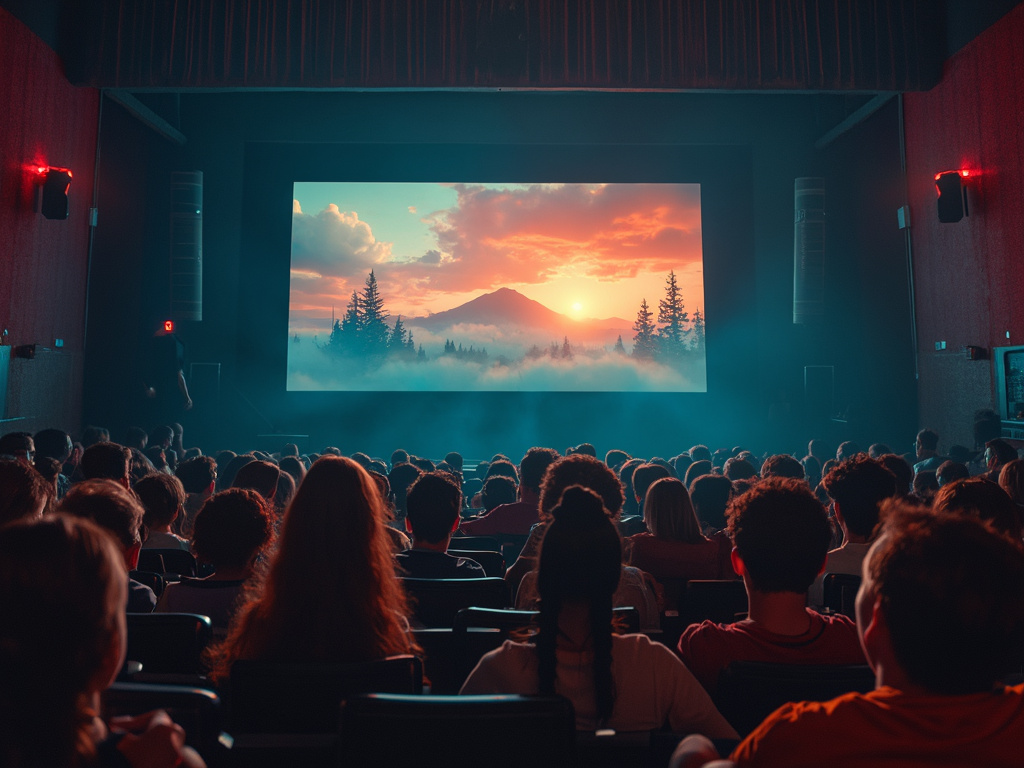The evolution of movie trailers
Movie trailers have undergone a remarkable transformation since their inception in the early 20th century. Initially, they served as simple promotional tools, often featuring a montage of scenes from the film without much thought to narrative structure or audience engagement. However, as the film industry evolved, so did the art of trailer-making. Today, trailers are crafted with meticulous attention to detail, often designed to evoke specific emotions and create a buzz around upcoming releases. This evolution reflects broader changes in film marketing strategies, as studios recognise the importance of captivating audiences long before the film hits theatres.
In the digital age, the accessibility of trailers has further revolutionised their role in Hollywood. With platforms like YouTube and social media, trailers can reach millions of viewers within hours of their release. This shift has led to the emergence of game-changing trailers that not only promote a film but also become cultural phenomena in their own right. The impact of these impactful trailers can be seen in the way they shape audience expectations and influence box office performance, making them an essential component of modern film marketing.
Trailblazing examples in Hollywood
Several trailers have set new standards in Hollywood, showcasing innovative techniques and storytelling methods that have redefined the genre. One such example is the trailer for “Inception,” directed by Christopher Nolan. Its use of a non-linear narrative, combined with a haunting score, created an air of mystery and intrigue that captivated audiences. This trailer not only highlighted the film’s complex themes but also established a new benchmark for how trailers could engage viewers on an intellectual level. The success of “Inception” demonstrated the power of a well-crafted trailer in generating anticipation and excitement.
Another trailblazing example is the teaser for “Star Wars: The Force Awakens.” This trailer masterfully blended nostalgia with fresh elements, appealing to both long-time fans and newcomers alike. By strategically revealing just enough of the plot and characters, it sparked widespread discussion and speculation across social media platforms. The trailer’s ability to create a sense of community among fans exemplifies how impactful trailers can transcend traditional marketing, becoming a part of the cultural conversation surrounding a film’s release.
The allure of marketing tactics
The allure of marketing tactics in the realm of movie trailers cannot be overstated. Studios have become increasingly savvy in their approach, employing various strategies to ensure their trailers stand out in a crowded marketplace. One effective tactic is the use of emotional storytelling, which resonates deeply with audiences. By tapping into universal themes such as love, loss, and adventure, trailers can create a strong emotional connection that compels viewers to seek out the full film. This approach has been particularly successful in the realm of indie films, where impactful trailers can elevate lesser-known projects to mainstream attention.
Moreover, the integration of viral marketing techniques has transformed how trailers are disseminated. The use of social media platforms to tease trailers, engage with fans, and encourage sharing has become a staple in film marketing. For instance, the viral campaign for “Deadpool” included humorous and unconventional trailers that perfectly matched the film’s tone, generating immense buzz and anticipation. This innovative approach not only showcased the film’s unique style but also highlighted the importance of understanding the target audience in crafting effective marketing strategies.
The future of movie trailers
As we look to the future, the landscape of movie trailers is poised for further evolution. With advancements in technology, such as virtual reality and augmented reality, the potential for immersive trailer experiences is becoming a reality. Imagine stepping into a virtual world where you can explore the film’s setting or interact with characters before the movie even begins. This level of engagement could revolutionise how audiences connect with films, making trailers not just promotional tools but interactive experiences that enhance the overall cinematic journey.
Additionally, the rise of streaming platforms has changed the way trailers are distributed and consumed. With audiences increasingly turning to platforms like Netflix and Amazon Prime, the traditional theatrical trailer may need to adapt to fit this new model. Shorter, more dynamic trailers that cater to the fast-paced nature of online viewing could become the norm, ensuring that films capture attention in an oversaturated digital landscape. As the industry continues to innovate, the future of movie trailers promises to be as exciting as the films they promote.
Conclusion: What we’ve learned
In conclusion, the evolution of movie trailers reflects broader changes in the film industry and marketing strategies. From their humble beginnings to the game-changing trailers we see today, these promotional tools have become essential in shaping audience expectations and driving box office success. The trailblazing examples from Hollywood demonstrate the power of impactful trailers to engage viewers and create cultural phenomena, while innovative marketing tactics continue to push the boundaries of what is possible.
As we move forward, the future of movie trailers holds exciting possibilities, with technology and changing viewing habits paving the way for new experiences. At Moviehustlers, we remain committed to exploring the ever-evolving landscape of film and celebrating the artistry behind both movies and their trailers. Join us as we continue to delve into the world of cinema, offering insights and analysis that inspire and inform movie enthusiasts everywhere.
